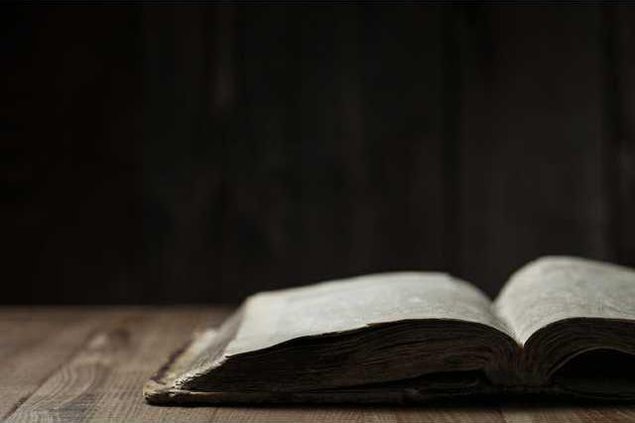If Republican presidential candidate Ben Carson's bid proves successful, Americans might need to memorize an Old Testament verse for one reason in particular, according to The Street.
What's that?
To understand Carson's Bible-influenced tax system, Valeria Young wrote for The Street.
"Make an offering of 10 percent, a tithe, of all the produce which grows in your fields year after year," Deuteronomy 14:22 in the Old Testament reads.
Carson hasn't given specifics in regards to the percentage Americans would pay but the rate would sit somewhere around 10 percent, Danny Vinik wrote for the New Republic. In addition, Carson has expressed interest in getting rid of tax loopholes, also calling for elimination of the IRS.
The candidate informed audiences as far back as at the 2013 National Prayer Breakfast of how a tithe-influenced tax code would be "inherently fair," according to the New Republic.
"What we need to do is come up with something simple. And when I pick up my Bible, you know what I see? I see the fairest individual in the universe, God, and he's given us a system. It's called a tithe," New Republic quoted Carson as saying at the prayer breakfast. "We don't necessarily have to do 10 percent, but it's the principle. You make $10 billion, you put in a billion. You make $10, you put in $1."
Doubling down on his plan, Carson said at the GOP presidential debate Aug. 6 it's "based on tithing because I think God is a pretty fair guy," Ben Johnson wrote for Charisma News.
Carson also discussed the flat tax at the latest debate Wednesday. There, Carson admitted he wasn't sure if the rate would be 10 percent, 15 percent or something else, according to McClatchy DC. But despite questions, his plan "would add up" in the long run, Carson maintained.
"When we put the facts down, you'll be able to see it works really well," McClatchy DC quoted him as saying.
Still, Sarah Posner wrote for Religion Dispatches she wonders whether Carson's proposal would work today. Posner questions whether a flat tax was rule of the land in biblical times, too.
A look at Jewish history might show it wasn't, Adam Chodorow, professor of law at Arizona State, told Posner.
"At least in the Jewish tradition and of course this is a Jewish practice that the Christians took over and ignored much of the marginalia about what it really meant tithing was not a flat 10 percent, at least in the ancient Jewish world. It was a range of giving. That would undermine some of what Mr. Carson is saying."
But whether they were progressive in old times or not matters little to Carson, according to Reuters. He said the poor would benefit from his plan because they have pride and "don't want to be taken care of."
What's that?
To understand Carson's Bible-influenced tax system, Valeria Young wrote for The Street.
"Make an offering of 10 percent, a tithe, of all the produce which grows in your fields year after year," Deuteronomy 14:22 in the Old Testament reads.
Carson hasn't given specifics in regards to the percentage Americans would pay but the rate would sit somewhere around 10 percent, Danny Vinik wrote for the New Republic. In addition, Carson has expressed interest in getting rid of tax loopholes, also calling for elimination of the IRS.
The candidate informed audiences as far back as at the 2013 National Prayer Breakfast of how a tithe-influenced tax code would be "inherently fair," according to the New Republic.
"What we need to do is come up with something simple. And when I pick up my Bible, you know what I see? I see the fairest individual in the universe, God, and he's given us a system. It's called a tithe," New Republic quoted Carson as saying at the prayer breakfast. "We don't necessarily have to do 10 percent, but it's the principle. You make $10 billion, you put in a billion. You make $10, you put in $1."
Doubling down on his plan, Carson said at the GOP presidential debate Aug. 6 it's "based on tithing because I think God is a pretty fair guy," Ben Johnson wrote for Charisma News.
Carson also discussed the flat tax at the latest debate Wednesday. There, Carson admitted he wasn't sure if the rate would be 10 percent, 15 percent or something else, according to McClatchy DC. But despite questions, his plan "would add up" in the long run, Carson maintained.
"When we put the facts down, you'll be able to see it works really well," McClatchy DC quoted him as saying.
Still, Sarah Posner wrote for Religion Dispatches she wonders whether Carson's proposal would work today. Posner questions whether a flat tax was rule of the land in biblical times, too.
A look at Jewish history might show it wasn't, Adam Chodorow, professor of law at Arizona State, told Posner.
"At least in the Jewish tradition and of course this is a Jewish practice that the Christians took over and ignored much of the marginalia about what it really meant tithing was not a flat 10 percent, at least in the ancient Jewish world. It was a range of giving. That would undermine some of what Mr. Carson is saying."
But whether they were progressive in old times or not matters little to Carson, according to Reuters. He said the poor would benefit from his plan because they have pride and "don't want to be taken care of."

